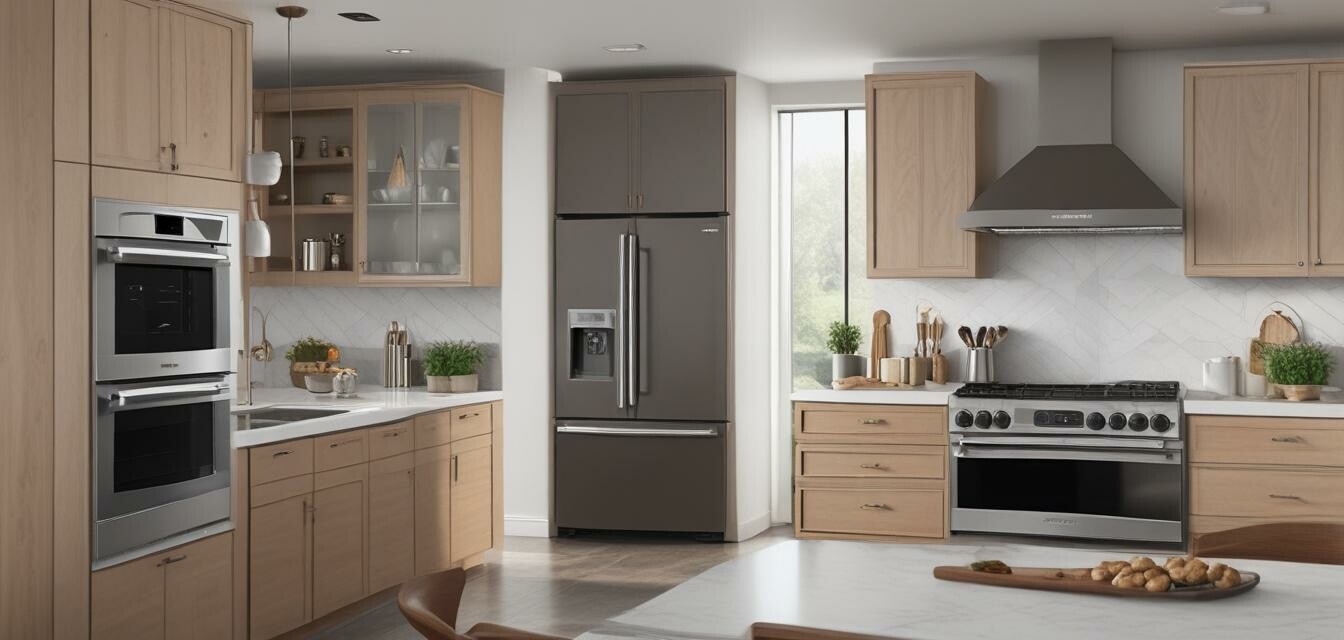
The role of IoT in modern kitchen appliances
Key Takeaways
- The Internet of Things (IoT) enhances kitchen appliances, enabling remote operation and smart features.
- Smart kitchen devices offer improved efficiency and convenience for cooking and meal preparation.
- The integration of IoT promotes energy management, reducing waste and saving costs.
- Emerging trends indicate a future of fully connected kitchens with seamless interface capabilities.
- Staying updated with the latest kitchen technology news is crucial for modern homeowners.
Introduction
The Internet of Things (IoT) has revolutionized how we interact with our kitchen appliances. With the ability to connect various devices to the internet, homeowners are enjoying unprecedented levels of convenience, efficiency, and control in their cooking spaces. This article will explore the multiple facets of IoT in modern kitchens and analyze its significant impact on kitchen appliances and functionalities.
Understanding IoT in the kitchen
IoT refers to a network of devices interconnected via the internet, allowing them to communicate and share data. In the context of kitchens, this technology has brought forth a new era of smart appliances designed to make cooking and meal preparation easier. Let's examine how IoT has transformed typical kitchen appliances:
| Type of Appliance | IoT-enabled Features |
|---|---|
| Smart Ovens | Remote control, pre-programmed recipes, and energy-efficient cooking settings. |
| Smart Refrigerators | Inventory tracking, temperature control, and smart alerts for expiration dates. |
| Intelligent Cooktops | Smart heating controls, cooking timers, and recipe synchronization. |
| Touchless Faucets | Automatic water flow control based on proximity, minimizing water waste. |
Benefits of IoT-enabled kitchen appliances
Adopting IoT technology offers several advantages for homeowners looking to enhance their kitchen experience:
- Convenience: Operate appliances remotely via smartphone apps, allowing you to start cooking before you even walk into the kitchen.
- Energy Efficiency: Monitor and control energy usage to optimize consumption and reduce monthly utility bills.
- Real-time Information: Receive alerts and updates on your appliances’ status, such as cooking progress or maintenance needs.
- Personalization: Customize cooking settings and suggestions based on your preferences and dietary needs.
- Enhanced Safety: Automatic shut-offs and alerts help prevent accidents in the kitchen.
The integration of smart technology in cooking
The trend toward connecting kitchen appliances is just the beginning. Here’s how smart technology continues to evolve:
| Technology | Impact on Kitchen Appliances |
|---|---|
| Voice Assistants | Enables hands-free control of appliances, allowing users to multitask effectively. |
| Machine Learning | Improves appliance performance over time through user habits, offering tailored cooking experiences. |
| Data Analytics | Analyzes user preferences to suggest recipes and cooking methods based on past behavior. |
| Home Automation | Integrates kitchen with other smart home devices for a seamless cooking experience. |
Future of IoT in kitchens
As technology advances, the future of IoT in kitchens looks promising. Homeowners can expect:
- Greater interoperability between different IoT appliances.
- Increased emphasis on sustainability, with appliances utilizing greener technologies.
- Enhanced user experiences through augmented reality and virtual interfaces.
- Continuous upgrades offering new functionalities to existing appliances via software updates.
Tips for choosing IoT kitchen appliances
- Assess compatibility with existing home automation systems.
- Look for appliances with user-friendly interfaces.
- Consider energy ratings and efficiency features.
- Read customer reviews for insights about performance and reliability.
- Stay within your budget while evaluating smart features that enhance your cooking experience.
Conclusion
The Internet of Things is shaping the kitchen landscape, offering dramatic advancements in how we approach cooking and appliance usage. As the technology continues to develop, it presents endless possibilities for making kitchens smarter and more efficient. To keep abreast of the latest trends in kitchen technology, be sure to check out our Kitchen Technology News section regularly.
Pros
- Increased convenience and efficiency in meal preparation.
- Remote access and monitoring of appliances.
- Enhanced energy management and reduced utility costs.
- Improved safety features to prevent accidents in the kitchen.
Cons
- Dependency on internet connectivity for appliance functionality.
- Potential security vulnerabilities related to data privacy.
- Learning curve for older users unfamiliar with technology.
- Upfront costs may be higher for smart appliances compared to traditional options.